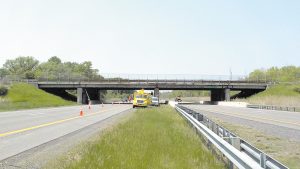The results of [the recent mid-term] election are in — Americans delivered a split decision on the makeup of the next Congress. In the House, Democrats won control from the Republicans and now hold the majority. In the Senate, Republicans maintained power and even [likely] added [two] seats to their majority. This means that we’ll be […]
Get Instant Access to This Article
Become a Central New York Business Journal subscriber and get immediate access to all of our subscriber-only content and much more.
- Critical Central New York business news and analysis updated daily.
- Immediate access to all subscriber-only content on our website.
- Get a year's worth of the Print Edition of The Central New York Business Journal.
- Special Feature Publications such as the Book of Lists and Revitalize Greater Binghamton, Mohawk Valley, and Syracuse Magazines
[bypass-paywall-buynow-link link_text="Click here to purchase a paywall bypass link for this article"].
The results of [the recent mid-term] election are in — Americans delivered a split decision on the makeup of the next Congress. In the House, Democrats won control from the Republicans and now hold the majority. In the Senate, Republicans maintained power and even [likely] added [two] seats to their majority. This means that we’ll be operating under divided government for the next two years. But it doesn’t mean that nothing will get done.
Throughout our history, the U.S. Chamber of Commerce has worked with all types of majorities to advance a pro-growth policy agenda. We’ve notched wins with Congress under Republican control, under Democrat control, and everything in between.
Even in today’s hyper-partisan environment, there are still areas where consensus exists in the middle. And we’re calling on our new and reelected leaders from both parties to claim that middle ground and reject the extremes on both sides. We will work with Democrats and Republicans to focus on the art of the possible — those issues that are most likely to attract bipartisan support and the president’s signature.
Here are two examples of priorities that are ripe for progress.
First, infrastructure. Members on both sides of the aisle have long agreed on the need to modernize the physical platform of our economy. They’ll have to make some trade-offs, but there is a real chance to finally do it. Republicans are going to have to accept that we need more revenue from dedicated user fees. Democrats are going to have to accept that private investment must be a big part of the solution. Both sides should look at this as an investment in our nation’s long-term competitiveness and future prosperity.
Second, immigration, which can help address our nation’s worker shortage. Employers must be able to hire the workers they need at every skill level — when and where they need them. So we must fix America’s broken immigration system. If lawmakers find the middle ground, work through the tough issues, and finally address this long-simmering challenge, they will help solve the people gap in our country and reaffirm our legacy of welcoming the world’s best talent and hardest workers.
We’ll also push our leaders to strengthen the U.S. workforce, adopt smart trade policies, advance energy, and support other pro-growth priorities. We’ll fight against efforts to roll back important policy gains from the previous two years, including tax reform and regulatory relief. Unraveling those policies would undermine our economy.
The bottom line is that while the composition of Congress may change, our objectives never do. We’re focused on working with both political parties to push for policies that grow the American economy, create good jobs, and advance free enterprise.
Thomas J. Donohue is president and CEO of the U.S. Chamber of Commerce.



